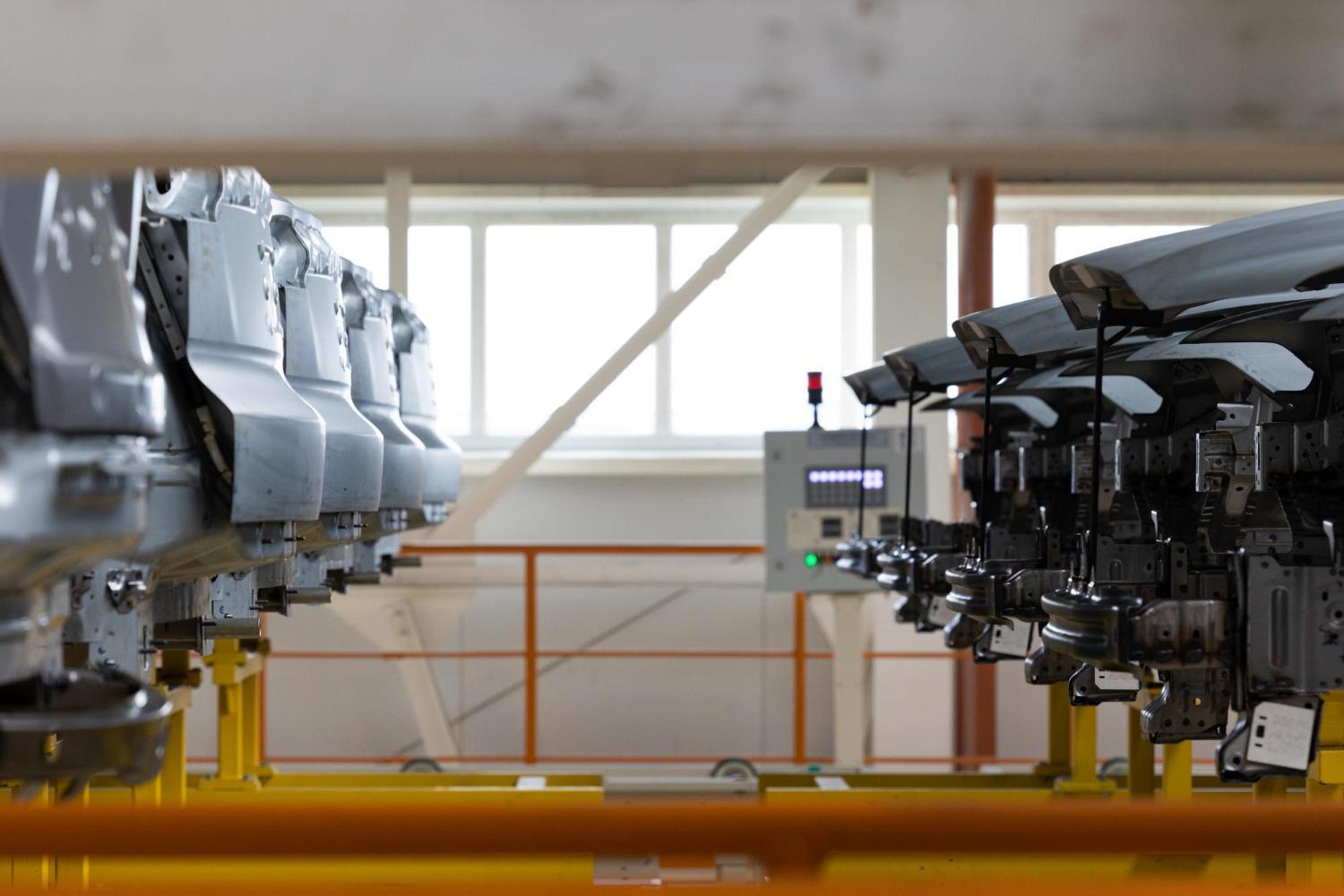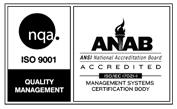When purchasing air operated diaphragm pumps for industrial purposes, you usually have a hard choice: whether to decide on an exclusively custom-built pump designed only for your needs or an off-the-shelf model, readily available and designed to meet the general industry requirements. This choice is indeed not a simple one and can affect your performance, cost, and efficiency to a great deal. Custom as well as off-the-shelf air driven pumps have their advantages and disadvantages, so selecting the right one would depend on an in-depth understanding of your application, industry-specific demands, and long-term operational goals.
Each of these will affect not only the short-term budget but also dependability, life, and energy efficiency over time. It is therefore crucial to make a decision based on factors such as initial cost, lead times, maintenance requirements, and finally, regulatory compliance. Thorough consideration of these factors ensures businesses are getting the pump best suited to match their capacity for operation simultaneously with the other objectives and their goals for further growth and expansion.
Understanding Air-Drive Pumps
Before delving into the differences between custom and off-the-shelf air-drive pumps, it’s important to have a clear understanding of what an air-drive pump is and how it functions.
Air-driven pumps use compressed air for energy to move fluids, gases, or chemicals. Due to their ability to withstand hazardous environments and function in areas in which electric pumps are unsuitable, air-driven pumps has widespread popularity in aerospace, chemical processing, oil and gas, automotive, and manufacturing applications.
Their key selling points include:
- Durability and reliability: Air-drive pumps are designed for heavy-duty applications and can withstand extreme conditions.
- Safety: As they are powered by air, they are a safer alternative in environments with combustible materials.
- Efficiency: These pumps can operate without needing an electrical power supply, which can reduce operational costs in certain settings.
Now that we’ve covered the basics, let’s dive into the main question: should you go for a custom air-drive pump or an off-the-shelf option?
Off-the-Shelf Air-Drive Pumps: Convenience and Affordability
Off-the-shelf air-drive pumps are mass-produced products readily available for purchase. These pumps come in standard configurations designed to meet the general needs of a wide variety of industries.
Advantages of Off-the-Shelf Air-Drive Pumps
- Cost-Effective One of the biggest advantages of choosing an off-the-shelf air-drive pump is the cost. Since these pumps are produced in large quantities, manufacturers benefit from economies of scale, allowing them to sell the products at a lower price. This makes off-the-shelf options ideal for businesses that have strict budget constraints.
- Immediate Availability When you need a pump quickly, an off-the-shelf solution is often the best option. Since these pumps are pre-manufactured and readily available in stock, they can be shipped and delivered quickly, reducing lead times.
- Proven Performance Off-the-shelf pumps have been tried and tested by many other users. These pumps are often well-documented, with extensive user reviews, performance data, and clear operational guidelines. You can easily compare products, read up on case studies, and make an informed decision based on others’ experiences.
- Wide Variety of Models Manufacturers produce a wide variety of off-the-shelf pumps to cover most common industrial applications. Whether you’re working with chemical transfer, wastewater treatment, or other fluid-handling tasks, chances are high that an off-the-shelf pump exists for your needs.
- Minimal Engineering Involvement Off-the-shelf pumps come pre-configured, which means you don’t need to invest time and resources into customizing or engineering the product to fit your application. For businesses without specialized technical teams, this can save time and reduce costs.
Disadvantages of Off-the-Shelf Air-Drive Pumps
- Limited Customization The primary drawback of an off-the-shelf pump is the lack of customization. While these pumps are built to cover a range of general applications, they may not meet the specific requirements of your project. If your application requires a specialized flow rate, pressure, or material construction, an off-the-shelf pump may not be the best solution.
- Potential Over-Specification Some standard pumps may include features or capabilities that your application doesn’t need. This can lead to higher costs, not in the pump itself but in operational inefficiencies, such as excessive energy use or unnecessary maintenance requirements.
- Fit-for-All Design Off-the-shelf pumps follow a one-size-fits-all approach. If your process requires very tight tolerances, specific dimensions, or unique material properties, an off-the-shelf pump may be insufficient, leading to performance issues or early failure.
Custom Air-Drive Pumps: Tailored Solutions for Complex Applications
Custom air-drive pumps are designed and manufactured to meet the precise needs of your application. These pumps offer tailored solutions, addressing all aspects of your operation, from flow rate and pressure requirements to material compatibility and performance under specific conditions.
Advantages of Custom Air-Drive Pumps
- Optimized Performance When you choose a custom air-drive pump, every aspect of the pump is designed to meet your exact requirements. Whether you need a certain flow rate, specific pressure settings, or unique temperature and chemical resistance, a custom solution ensures optimal performance in your application.
- Specialized Materials Different industries, such as aerospace, food processing, or pharmaceuticals, may require pumps made from special materials that can withstand corrosive chemicals, high temperatures, or strict hygiene standards. Custom pumps can be engineered using the right materials, coatings, or linings to ensure durability and compliance with industry standards.
- Greater Efficiency Because custom air-drive pumps are specifically designed to meet the demands of your operation, they often operate with greater efficiency than off-the-shelf models. Custom pumps can be fine-tuned to match the exact energy usage, reduce waste, and lower operational costs in the long run.
- Enhanced Reliability and Lifespan Custom pumps are built to suit your environment, whether that means extreme heat, corrosive materials, or abrasive fluids. This makes them more reliable over time and ensures a longer operational lifespan compared to standard, mass-produced pumps that may not be fully equipped to handle your specific conditions.
- Compliance with Regulatory Standards Custom pumps can be designed to comply with strict industry regulations. For example, aerospace manufacturers must meet stringent safety and performance standards. Custom solutions allow you to design a pump that aligns with these regulations, avoiding potential compliance issues down the road.
- Competitive Advantage A custom pump designed to perfectly fit your operation may give your company a competitive edge, helping you improve productivity, reduce costs, and achieve superior results compared to competitors using off-the-shelf solutions.
Disadvantages of Custom Air-Drive Pumps
- Higher Initial Costs The most significant drawback of a custom air-drive pump is the upfront cost. Custom solutions require additional engineering, design, and manufacturing time, which drives up the price compared to off-the-shelf models. However, these costs are often recouped through long-term savings in maintenance, energy use, and improved efficiency.
- Longer Lead Times Custom air-drive pumps typically take longer to manufacture. From the initial design process to the actual build and delivery, lead times can be much longer compared to off-the-shelf products. If you’re working under tight deadlines, this may be a critical factor to consider.
- Requires Technical Expertise Specifying and designing a custom pump requires in-depth technical knowledge and collaboration with the manufacturer. If your organization lacks the internal expertise or resources to provide detailed input on design requirements, you may need to hire external consultants, further adding to costs.
- Limited Testing Unlike off-the-shelf pumps that have been widely tested in various environments, custom pumps are often unique to your operation. While manufacturers will test the pump to ensure it meets design specifications, it may take additional time and adjustments before it is fully optimized for your specific application.
Key Factors to Consider When Choosing Between Custom and Off-the-Shelf Pumps
Deciding between a custom and off-the-shelf air-drive pump comes down to several key factors. Let’s explore these considerations:
1. Application-Specific Needs
Your operational requirements should guide your decision. If your application involves highly specialized conditions—such as dealing with corrosive fluids, operating in extreme temperatures, or requiring specific pressure outputs—then a custom pump may be necessary. However, if your needs align with common industrial applications, an off-the-shelf pump may suffice.
2. Budget
Cost is always a major factor. If your business needs to minimize upfront investment and can work within standard performance specifications, an off-the-shelf pump will likely be the most economical choice. However, if you require superior long-term performance, lower operating costs, or specialized features, investing in a custom solution may be more cost-effective in the long run.
3. Lead Time
How quickly do you need the pump? If your project has a tight timeline, an off-the-shelf pump can be procured quickly, allowing you to meet your deadlines without delays. Custom pumps, on the other hand, require longer lead times, so be sure to factor in your project schedule when making a decision.
4. Maintenance and Longevity
While off-the-shelf pumps may have lower upfront costs, they may require more frequent maintenance and replacements over time, particularly if they are not optimized for your application. Custom pumps, while more expensive initially, may last longer and perform more reliably, reducing downtime and maintenance costs.
5. Industry Regulations
Some industries, such as aerospace or pharmaceuticals, have strict regulatory requirements that standard, off-the-shelf pumps may not meet. In these cases, custom pumps can be designed to comply with specific standards, avoiding costly penalties or regulatory issues.
Conclusion
Ultimately, the choice between custom and off-the-shelf air-drive pumps depends on your specific operational requirements, budget, and long-term goals. If your application is relatively straightforward, with no specialized needs, an off-the-shelf pump can provide a cost-effective, quick solution. However, for businesses operating in complex environments with specific demands, a custom pump will offer tailored performance, greater efficiency, and a longer lifespan, potentially saving money over time.



Get Social